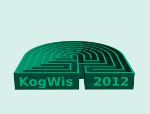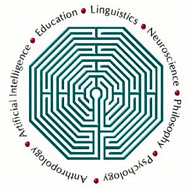Invited Symposia and Symposia
Social Cognition and Culture
Albert Newen and Kai Vogeley
Monday, 13:30–16:30, M3/02.32
The leading questions of the symposium are: How do we understand other human beings, what are the best theoretical perspectives, what can we learn from cognitive neuroscience and what is the role of culture in the process of understanding others? In the recent development of social cognition it has become clear that we not only have to account for the observational stance towards other people but that we also have to systematically consider situations of online interaction with other human beings (2nd person perspective). Furthermore, it will be reflected in which way self-understanding and understanding others interact. Finally, a strong focus of the symposium will be the discussion of the role of a cultural dimension for representations of oneself and of the other. The main aim of the symposium is to present the state of the art of some key topics of social and cultural cognition and to outline some paradigmatic lines for future research.
- Introduction and Statement "Theories of social and cultural understanding"
- Diversity and Narrative in Social Cognition
- Culture, Mind, and the Brain: Implications for Social Cognition
- A Statement: "The neuroscience of social and cultural cognition."
Spatial Cognition – Foundations and Applications
Christoph Hölscher (Chaired by Gerhard Strube)
Tuesday, 9:30–12:00, M3N/02.32
This symposium brings together neuroscientific, psychological and computer science researchers whose common theme is the investigation of human spatial cognition. This session serves as a showcase of current trends in spatial cognition research in four German research groups. The talks illustrate the broad range of topics of basic and applied research, including the neural basis of place perception, empirical investigation of landmarks as well as age-related changes in wayfinding performance and representing place information in a digital recommender system.
- Models for invariant place recognition
- Wayfinding: the influence of structural salience and visibility
- Spatial navigation – a unique window into mechanisms of cognitive ageing
- Image-based Place Models for Geographic Recommendations
Linguistic vs. Non-Linguistic Knowledge
Barbara Kaup and Claudia Maienborn
Tuesday, 9:30–12:00, M3/01.26
For understanding language we may exploit a huge variety of rich knowledge resources: linguistic structure, contextual information, sensory-motor input, world knowledge, pragmatic strategies, etc. The question of whether there is a need for systematically distinguishing between linguistic and non-linguistic knowledge is of interest for both linguistics and cognitive psychology. Yet, until recently both sides tended to ignore this issue more or less. Theoretical linguists usually suppose tacitly that there is such a difference but then only take care of (what they assume to be) the linguistic meaning part. (A prominent exception is Asher’s (2011) theory of lexical meaning in context.) In cognitive psychology the standard assumption is that word forms gain meaning by being connected to nodes in the conceptual system. However, the exact nature of this relationship is rarely discussed. With a few exceptions (e.g., Vigliocco & Vinson, 2007), most authors seem to assume that word meanings and concepts are identical.
This issue is particularly relevant because it points to the status of compositionality as a guiding principle for the formation of complex meanings. In a frequently cited study by Hagoort et al. (2004) the distinction between linguistic and non-linguistic knowledge has been challenged by experimental results. Hagoort et al. concluded that semantic and conceptual information is processed in one step, making obsolete the distinction, and challenging, furthermore, the idea of compositionality which proclaims the primacy of syntax as a combinatorial guideline. This controversial issue has been taken up more recently in several experimental studies (e.g., Pylkkänen et al. 2009). What can be learnt from these studies is above all, that we are strikingly missing a good understanding of what could count as methodically and empirically solid criteria to distinguish linguistic and non-linguistic knowledge. The symposium will provide an interdisciplinary platform for linguists and cognitive psychologists to discuss questions pertaining to the distinction of linguistic vs. non-linguistic knowledge.
- Processing Semantic vs. Conceptual Violations
- Is Comprehension Feasible Without Validation? Evidence from a Stroop-like Paradigm
- On the Time Course of Semantic/Conceptual Processing – Insights from Neutral and Emotional Words
- Pitfalls in the Language-Thought Distinction: a View on Studies of Linguistic Relativity
- Linguistic Structure Meets Natural Language Metaphysics
Kognitive Modelle der Fehlerverarbeitung
Marco Steinhauser
Tuesday, 13:30–16:30, M3/01.26
Optimales Verhalten erfordert, dass Fehler im eigenen Verhalten erkannt und aus diesen gelernt wird. In den letzten Jahren sind hierzu eine Reihe theoretischer Vorstellungen entwickelt worden, die mit unterschiedlichen neuro- und kognitionswissenschaftlichen Methoden getestet wurden. Das Symposium stellt verschiedene theoretische und methodische Ansätze aus diesem Forschungsbereich vor.
- Lernen aus positivem und negativem Feedback: Die Rolle von Erwartungsverletzungen
- Ereigniskorrelierte lokale Feldpotentiale des Nucleus Accumbens bei Handlungskontrolle
- Die Rolle des posterioren frontomedianen Cortex bei adaptiven Prozessen in visuellen und motorischen Arealen
- Mechanismen der bewussten Fehlerdetektion
Modeling Cognition in Communication
Stefan Kopp and Kirsten Bergmann
Tuesday, 13:30–16:30, M3N/02.32
Modeling cognitive processing has become a vital branch of Cognitive Science. General purpose architectures, like SOAR, ACT/R, CLARION, etc., provide us with means of simulating cognitive tasks based on principles of human-like memory, activation, control, or distributed processing. Bayesian models allow for modeling cognitive phenomena while considering incompleteness and uncertainty of data as a ubiquitous constraint. Such methods have been successfully employed to model and understand tasks like categorization, language processing, arithmetics or car-driving. Modeling the complex cognitive processes underlying communication and social interaction, however, still poses open challenges and has been investigated only rudimentarily. At the same time, there is a growing awareness that cognitively plausible (or at least inspired) models and algorithms can help to build better autonomous technical systems. Yet, they are relatively underrated in the design of interactive systems that model human-like communication with natural language, nonverbal behavior, or dialogue. This symposium aims to further the development and the convergence of these two branches of Cognitive Science: (1) the use of techniques from cognitive modeling to study what the human mind is doing in interactive settings; (2) the use of cognitively oriented approaches to model communicative abilities for technical systems. Four presentations by researchers in different fields will emphasize the role of cognitive models in modeling communication from different perspectives:
- Modelling Prediction in Language Processing
- The Production of Co-speech Iconic Gestures
- Adapting to Addressee Feedback on the Basis of Attributed Mental States
- The AIRBUS Model: A Bayesian Model for Intention Recognition in Communication
The Cultural Constitution of Causal Cognition: Cross-disciplinary perspectives from the ZiF Research Group
Andrea Bender and Sieghard Beller
Tuesday, 13:30–16:30, M3/00.16
Causality is one of the core concepts in our attempts to make sense of the world, and this renders causal cognition a core topic for the social as well as the cognitive sciences. In the past, however, respective research has been split into diverging paradigms, each pertaining to a distinct (sub)discipline and focusing on specific domains, thus creating a rather fragmented picture of causal cognition. Furthermore, most of this previous research paid only incidental attention to culture as a constitutive factor. Yet, cultural variation can be expected with respect to the delineation of domains, the concepts referred to, the mechanisms of processing, and even the willingness to search for causal explanations in the first place (e.g., Bang et al., 2007; Bender & Beller, 2011; Legare & Gelman, 2008). A systematic and thorough investigation into the cultural constitution of causal cognition is thus overdue. The current ZiF Research Group on "The cultural constitution of causal cognition: Re-integrating anthropology into the cognitive sciences" (funded by the Center for Interdisciplinary Research at Bielefeld University) intends to take on the challenge. In this symposium, fellows of the research group with backgrounds in anthropology, linguistics, psychology and philosophy present their perspective on causal cognition and its cultural constitution, and try to establish connections across disciplines and paradigms.
- How Universal is Causal Cognition? And How Can we Know?
- Weighing up Physical Causes in Germany and Tonga: Effects of Presentation and Answer Mode
- Complex Causal Relations Without Overt Linguistic Expression: the Case of Sonst ("else/otherwise")
- How Causal Models of Mind and Behavior Shape Causal Models of Mental Illnesses
- Causality and Discourse: How do we Talk Ourselves into the Causal Models that we Use?
Clinical Applications of Cognitive Science
Wolfgang Trapp
Wednesday, 9:30–13:00, M3/00.16
- Mental Relief by Electromagnetic Stimulation – can rTMS Cure Depression?
- A Creeping Mental Breakdown – Why Dementia is Still a Big Therapeutic Challenge
- Molding the Virtual Body – How Induced Illusions can Help Patients Suffering from Chronic Pain
- Cognitive Remediation is Fun! Effects of Game-like Cognitive Training Interventions for Psychiatric Patients
- Pressing the Brain's Reset Button – is Electroconvulsive Therapy Still an Option? [Held in German]
Cognitive Aspects of Human-Technology Interaction
Manfred Thüring
Wednesday, 9:30–13:00, M3N/02.32
Technology has become an integral part of everyday life. It is present in our homes, it is part of our working places, we use it to travel, and when we are on the move we are equipped with mobile devices that support us in many ways. Cognition plays a major role when we learn how to operate a technical system, when we try to understand its functionality and when we finally employ it. Obviously, human-technology interaction (HTI) offers a wide range of fascinating research opportunities for cognitive science. At the same time, it poses a number of serious challenges. To begin with, most technical systems are complex by nature and so are the cognitive processes that are involved when we try to master such a system. This constellation is highly demanding for theories that intend to capture the cognitive aspects of human-technology interaction. Due to the large variety of cognitive aspects involved, HTI may prove as an ideal test bed for theories that reach beyond the explanation of isolated phenomena. In the future, research in this field may therefore contribute to fulfill the requirements of a "unified theory of cognition" as called for by Alan Newell in 1990.
- Introduction
- Investigating the Emergence of User Experience
- Zeitabhängige Entscheidungsfindung im Fluglotsenkontext
- Temporal Aspects of User Experience
- Driving and Situation Awareness: a Cognitive Model of Memory-Update Processes
- Der Einfluss des Automationsgrads auf die Situationsrepräsentation des Fahrers: Ein Experiment zur Reaktionszeit des Fahrers in Übernahmesituationen
- Human-Computer Interaction: Lessons in Applied Cognitive Science
Multimodal Interaction
Christopher Habel
Wednesday, 9:30–13:00, M3/01.26
Phenomena of multimodal interaction can be investigated and discussed on a variety of layers, namely, (1) the representational layer, e.g. language – graphics, taking into consideration sub-layers, e.g. "speech" – "language in written form", and (2) the perceptual layer, in particular, the layers concerning the sensor channels of vision, audition, and haptics.
- Multimodality in the Wild – Speech and Gesture in Human Communication
- The Role of Sensorimotor Representations for Language Comprehension
- Modality Switching Costs – Evidence from Human Wayfinding
- Verbally Assisted Exploration of Virtual-tactile Graphical Representations







